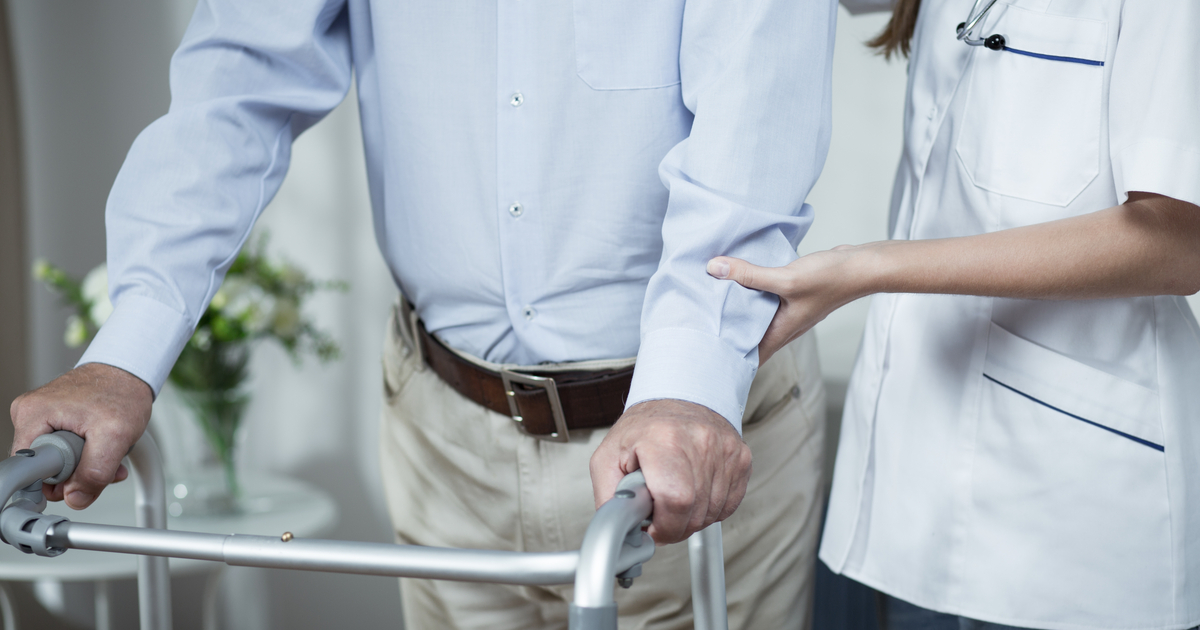You’ve noticed lately that your elderly father’s balance and coordination aren’t what they used to be. Last week you had to take him to the E.R. because he fell at home (again) and sustained some cuts and bruises. You love your dad, and want him to continue aging independently in place for as long as possible.
Whenever you’ve tried to discuss getting an assistive device for him, like a walker, he gets defensive and says: “Those things are for old people!”. What should you do? Persuading an elderly parent that it’s time to use a walker isn’t easy. What follows are some creative ways to get them to agree.
Balance Difficulties Seniors Face
On average, once a person reaches age 55, their balance and coordination start to decline. As a result, their likelihood to experience an accidental fall increases- a risk that’s exacerbated by dementia or Alzheimer’s. Other medical conditions, illnesses, and certain medications can also compromise a senior’s balance. According to the Centers for Disease Control and Prevention (CDC), Americans 65-and-over account for these annual fall-related statistics:
- 1 in 3 seniors experience a fall.
- Falls are the most common trauma-related reason for hospital admissions, and lead to more nonfatal injuries in the elderly population, than any other cause.
- Every 11 seconds, a senior is treated in a hospital emergency room after falling.
- Every 19 minutes, an elderly person dies from fall-related injuries.
- Each year, seniors incur 2.8 million injuries, 800,000 hospitalizations, and over 27,000 fatalities related to falls.
Although many at-home seniors won’t admit it to others, they have a fear of falling that restricts their normal daily activities. Not engaging in some of those activities can result in diminished health, depression, feeling hopeless, and social isolation; all of which can jeopardize their at-home independence. When serving as your parent’s caregiver, all these potential difficulties are troubling when a walker may be the simple solution they need.
Getting Your Parent to Say “Yes”
Before attempting to convince your stubborn dad to try a walker, research the topic of balance-related falls in the elderly. Think about examples of older persons you know who have sustained serious, fall-related injuries. When you’re ready, maturely and respectfully approach him about the topic, and ask for his permission to discuss it further.
If dad agrees, share with him what you’ve learned about fall risks, how much he means to you, and why it’s a concern. Always patiently listen to his side of the issue, and avoid arguments no matter what. When necessary, use these other strategies to get him to say “yes” to a walker:
- Talk with his doctor, and ask them to conduct a balance assessment on your dad. A licensed physical therapist can also do the test. If he fails the assessment, dad might listen to advice from a trained medical professional about the safety and lifestyle-accommodating benefits of using a walker.
- Point out his friends or acquaintances who use one.
- Try different tactics like appealing to his sensibilities, flattering him, suggesting a compromise, or making a deal. For example, get dad to agree to initially use the walker just around his house. Once he discovers how helpful it is, he will probably choose to use it outside the home too!
- Let your dad complain and fuss to his heart’s content without responding.
- Tell him how proud you are that he’s using it, and ask your siblings and other family members to chime in with support and encouragement.
- Allow dad to pick out an assistive device model that best fits his personality. Jazz it up with his favorite athletic team’s colors, some decals, or other fun decorations.
When a Senior At-Home Parent Needs Convincing…
Senior parents are oftentimes hesitant to listen to adult children about using an assistive device like a walker. When you’re serving as your parent’s caregiver, or live far away, it can be frustrating when poor balance is threatening their at-home independence. If you need some assistance, call the caregiving professionals at Seniors Prefer Homecare. Our well-trained and highly-qualified aides understand balance challenges that seniors face, and the importance of using an assistive device to keep them safe, active, and comfortably living at home.
When needed, our caregivers are highly proficient at gently convincing seniors to use a walker or cane. While in their home, our aides can also perform other duties, like light housework, personal hygiene, meal preparation, medication reminders, transportation and companionship; all delivered using a flexible approach to put your mind at-ease. To learn more about the family-trusted, home healthcare services Seniors Prefer Homecare offers in the Birmingham, Huntsville, and Tuscaloosa, AL, areas, please visit: www.seniorspreferhomecare.com now!

